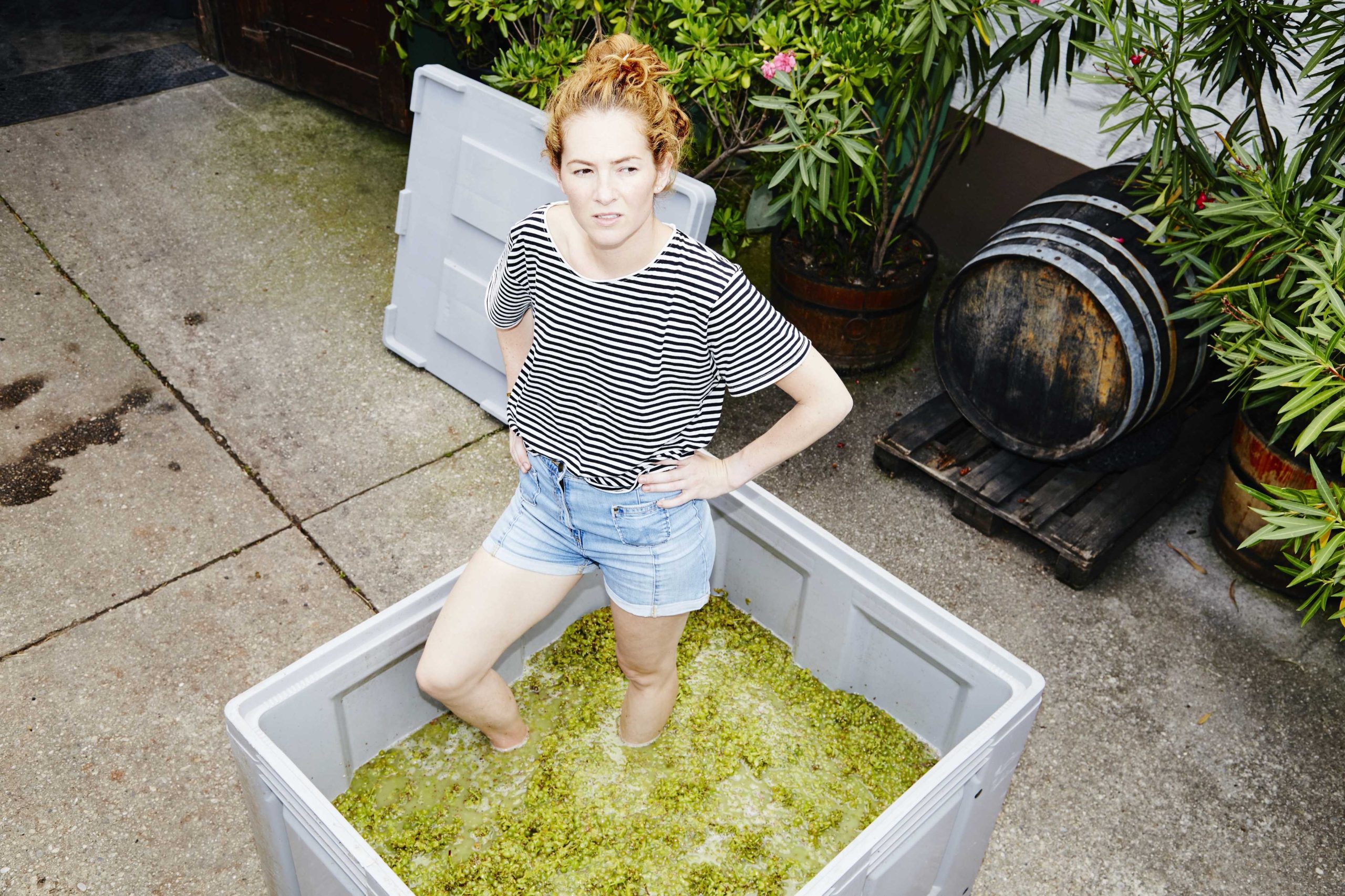
What is natural wine? 6 things you need to know about natural wine
In the meantime, you no longer need an eagle eye to discover natural wines in hip bars and restaurants. Whether in Berlin, London, or Paris, natural wine is everywhere! 🍷 Demand is rising steadily, but natural wine hasn't just been around for a few years. So where does natural wine come from? And what is natural wine anyway? Grab a good glass, we'll explain.
What is natural wine? A natural step back
Wine has been produced by humans for thousands of years. Around 8000 years to be exact. For most of that time, winemaking was as simple as can be. You take grapes, crush them until the juice comes out and wait for the atmospheric yeasts to start turning the fructose in the grapes into alcohol. It's kind of like sourdough, where no yeast is added, but fermentation starts naturally. And once this process is complete, the wine is stored in a cool, dark place and consumed sooner or later. Cheers!
Quantity over quality... or something like that
Around the 20th century with the industrial turn, a winery could suddenly cultivate and harvest much larger quantities of grapes with the help of tractors and other equipment. But this development was not limited to vineyards. With the help of cultivated yeasts, enzymes, vitamins, etc., it was possible to influence the wine in the production process and make it into what the winemaker wants in the final product. After that, it's filtered, so that it looks better, and sells better. This was the start of the mass production of wine, so to speak.
However, not all winemakers were quite so convinced of this and instead opted for natural production methods. As little intervention as possible is the motto of the countermovement. This movement emerged in the 1980s in a wide variety of wine regions, from Beaujolais to the Italian-Slovenian wine region. There have always been winegrowers who kept their distance from industrial wine production and relied on nature. Even before the expression "natural wine".
Natural Wine, Vin Naturel & Vino Naturale
From these small groups an ever larger movement developed and a question with which all these producers and lovers have always dealt with still poses itself today: What actually makes a wine a natural wine?
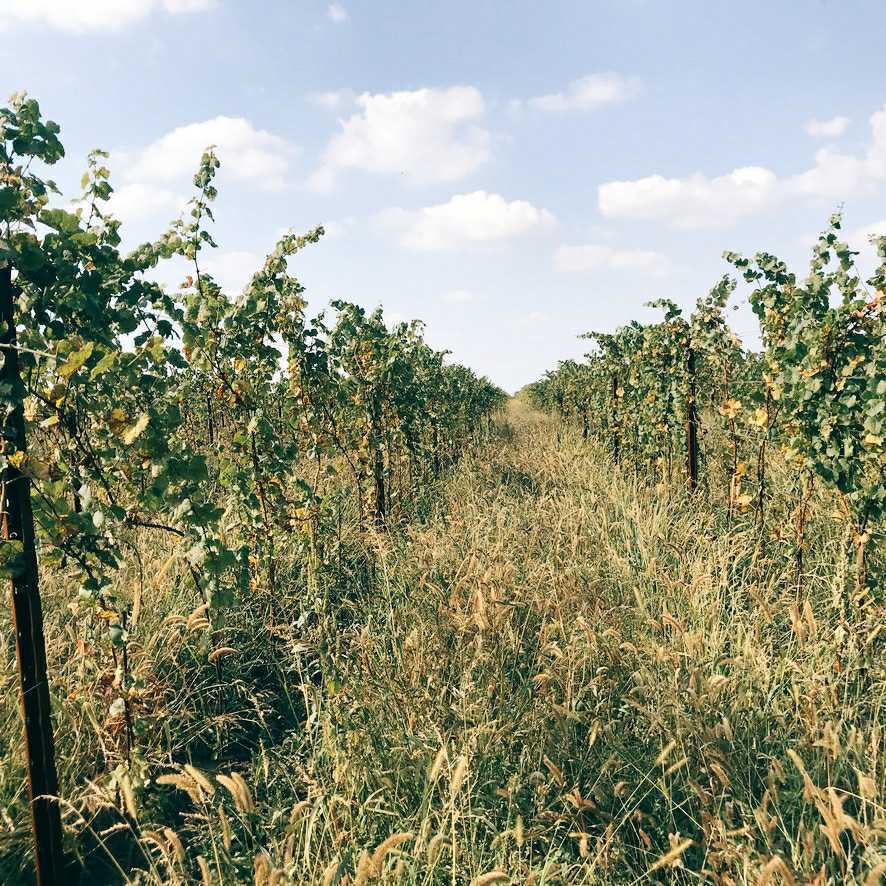
The term is a bit tricky. Because, as many would say, isn't all wine "natural"?. But it doesn't quite work out that way, because to date no grape has decided to hop into the tank on its own, crush itself and become wine.
Natural wine: low in intervention, high in nature
So human intervention is always needed to pick the grapes from the vine to then produce the final product, wine. The question is, however, how much intervention is allowed. Natural wine is also called "low intervention" wine, because the winemakers try to intervene as little as possible and only where it is really necessary.
An attempt to describe natural wine would be to say that it is wine in its purest form. Real, wild, and somewhat adventurous. In short, a "naked" wine that does not cheat; no chemistry, no makeup. A unique product of passionate winemakers who avoid (as much as possible) all technical and chemical aids.
Life in a Glass
This minimalist way of making wine naturally also affects the taste of the finished wine. Suddenly, completely new worlds of taste open up. This is particularly evident in the so-called "orange wine": a white wine that is, however, vinified like a red wine. Also exciting are the bubbly natural wines, so-called "pet nats." The wine is alive, the range of smells and tastes so much more colorful, and the end product usually a real one-of-a-kind. That is exactly what natural wine is.
How is natural wine made? 6 important points!
Its purity makes natural wine relatively demanding in production and requires a high degree of tact. This is because the wine is largely left to its own devices during its creation. There is no clear definition of what characterizes a natural wine. But connoisseurs agree on six essential criteria for the designation "natural wine":
1. Organic or Biodynamic Cultivation
The winemakers work in the vineyard according to organic or biodynamic guidelines. The vast majority of natural wines also carry the corresponding certificates. We find it particularly sweet that sheep are often used in the vineyard for mowing and fertilizing.
2. Hand Harvest
When harvesting, winemakers distinguish between machine harvesting and hand harvesting. Conventional winegrowers (not all) more often resort to machine harvesting. The advantages? The work is much faster and cheaper. But it also has disadvantages: such a harvesting machine is quite heavy and compacts the soil when driving through the vineyard. Thus, the diversity in the vineyard is damaged. All natural winemakers rely on hand harvesting: Winemakers pick each grape by hand and check whether it meets the requirements for the wine. This process protects the vines and guarantees that only the best grapes are used in the wine.
3. Spontaneous Fermentation
Unlike conventional wines, which are known to be fermented in a controlled manner with the help of pure cultured yeasts, the fermentation of natural wine starts spontaneously. Wild yeasts (natural yeasts, environmental yeasts) are responsible for this.
4. No or Minimal Filtration
Responsible for the cloudy look and taste of the natural wine: fine particles, for example from fine yeast, are retained and are drunk along with it.
5. No Fining Agents
As the name suggests, this is to make conventional wine visually "beautiful" or clear. Natural wine does not use this artificial process, so it contains enzymes, proteins and other substances.
6. No to Minimal Added Sulfur
Wine experts agree: low sulfur content is characteristic of a genuine natural wine. Conventionally produced wines are preserved by added sulfur. Natural wine, on the other hand, always lives on in the bottle. We like!
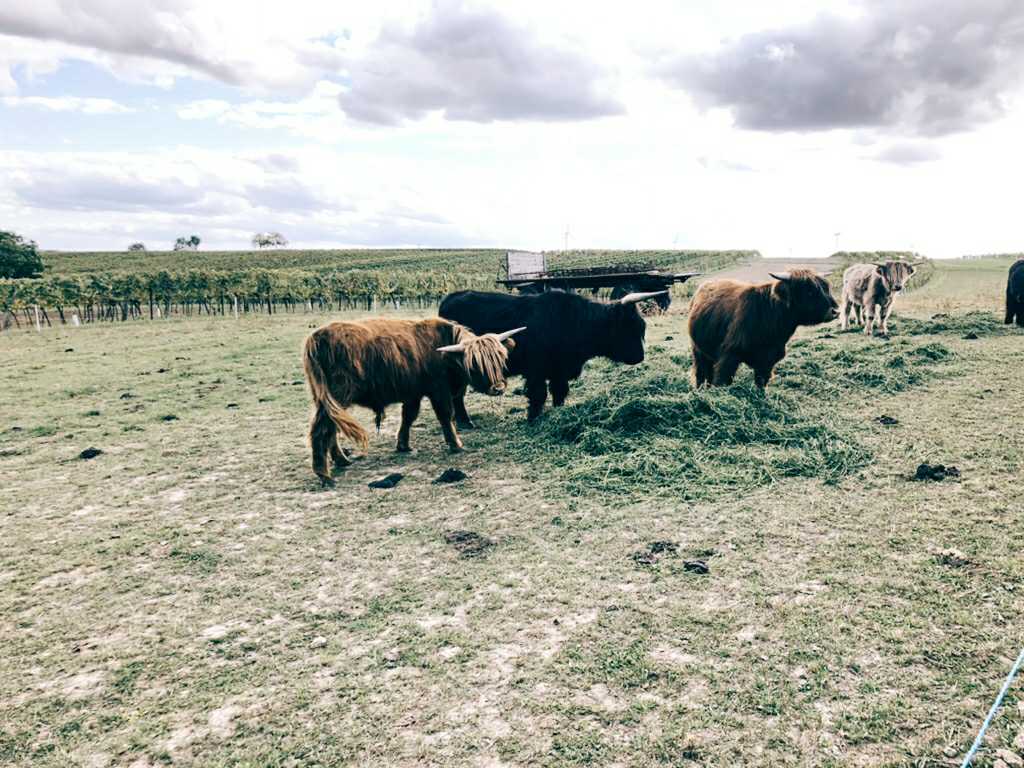
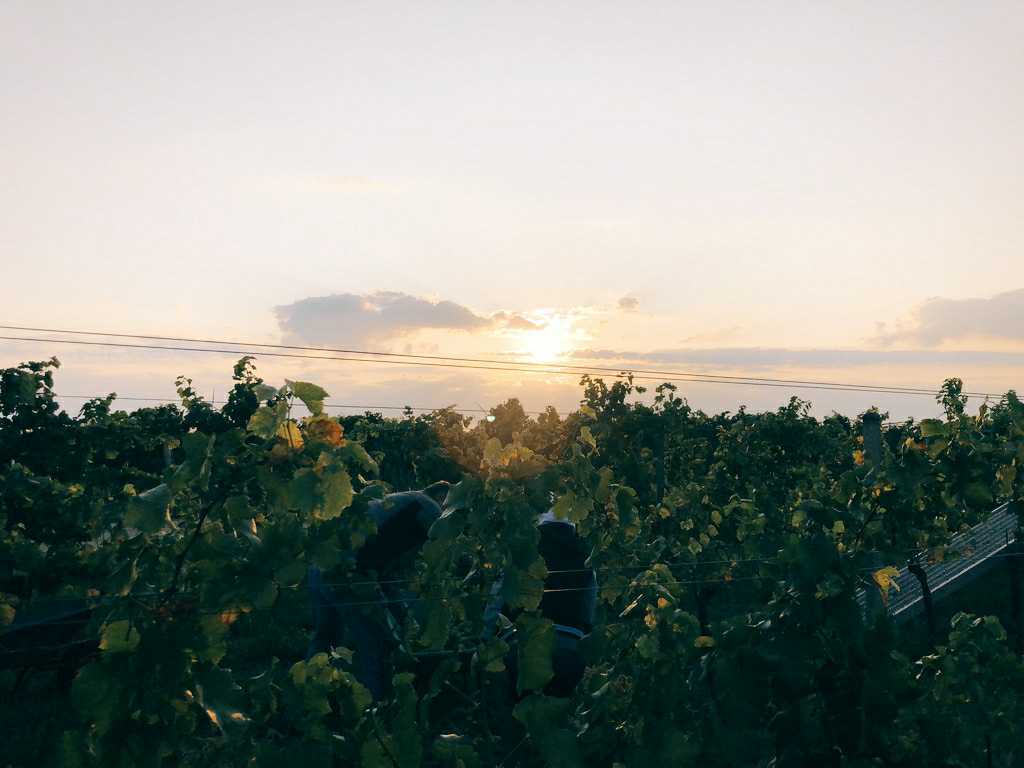
3 Natural Wines to Try
3 FAQs about Natural Wine
What is Natural Wine?
Natural wine is wine with as little human intervention as possible. The basis of natural wine is an ecological management of vineyards. In addition, as far as possible no chemical aids are used in winemaking, sulfur, for example, is used only in minimal quantities when it is not otherwise possible. Visually, it is often recognizable by its cloudy look, as it is never filtered.
How does natural wine taste?
Often, natural wines actually taste somewhat different than conventional wines: namely more interesting, wilder and more complex. Typically, they also smell more intense and tart - but please don't let that put you off! You can also compare this with the difference between a filtered, pasteurized apple juice from the supermarket and a freshly pressed one. Of course there are differences!
How is natural wine made?
In the case of natural wines, very specific attention is paid to intervene only very minimally in the aging process. This means that the fermentation takes place spontaneously (instead of by pure culture yeasts), the wines are not added with chemical aids and are bottled unfiltered. In addition, the vineyard is managed organically.
Is natural wine and orange wine the same thing?
Not quite! Orange wine describes a method of production. Namely, when white grapes are fermented on the mash, extracting more flavor and also color (as in red wine). Natural wine, on the other hand, can be red, white, orange, rosé, still or sparkling. It is therefore much broader and describes the complete production method and movement of wines that go against industrialization.

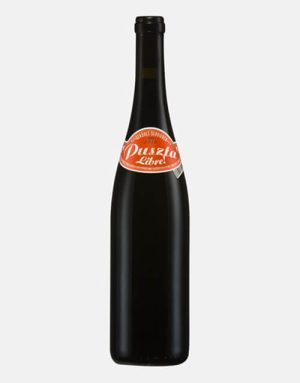
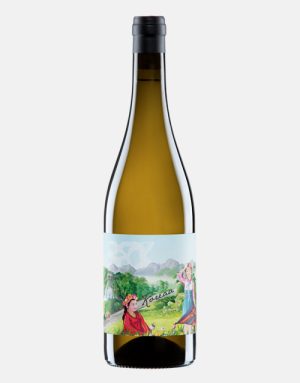
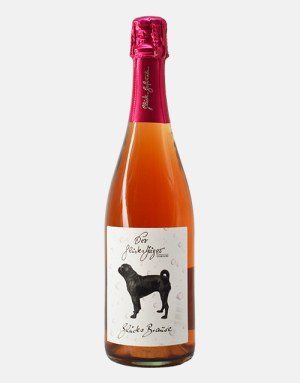

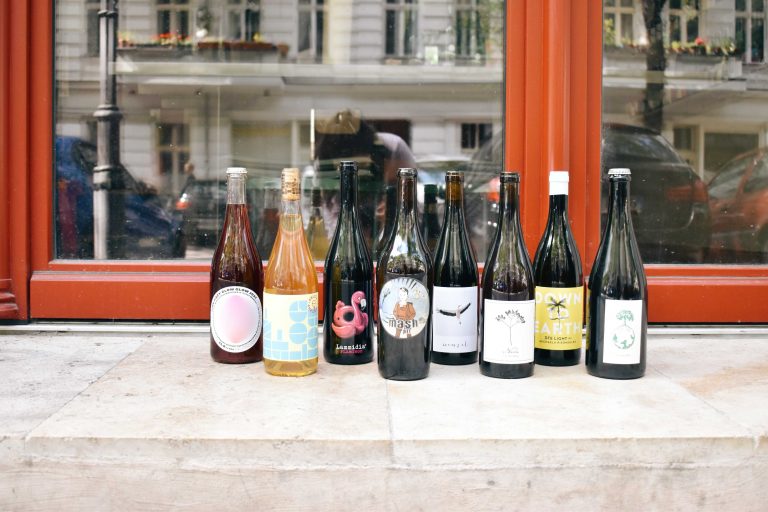
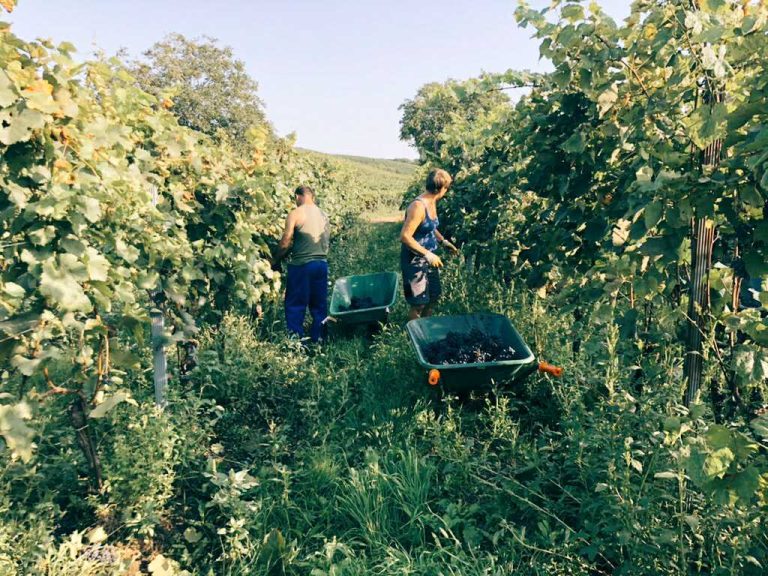
I planted 100 vines last year. 4 different white wines. It will surely yield 20-30kg of grapes this year.
How exactly can I make natural wine. Is there anyone who has exact instructions? I don't know how to do it with yeast or even with little sulfur. Thanks in advance. Ernst Mayr
Dear Ernst,
how great, I hope your vines are growing nicely. Since we are purely a distributor of natural wines, we are unfortunately not the best contact for this. You could, however, contact a company whose wines you particularly like directly. The natural wine scene is basically very helpful, you will certainly find open ears and get some tips.
All the best for your project!
Love,
Anna